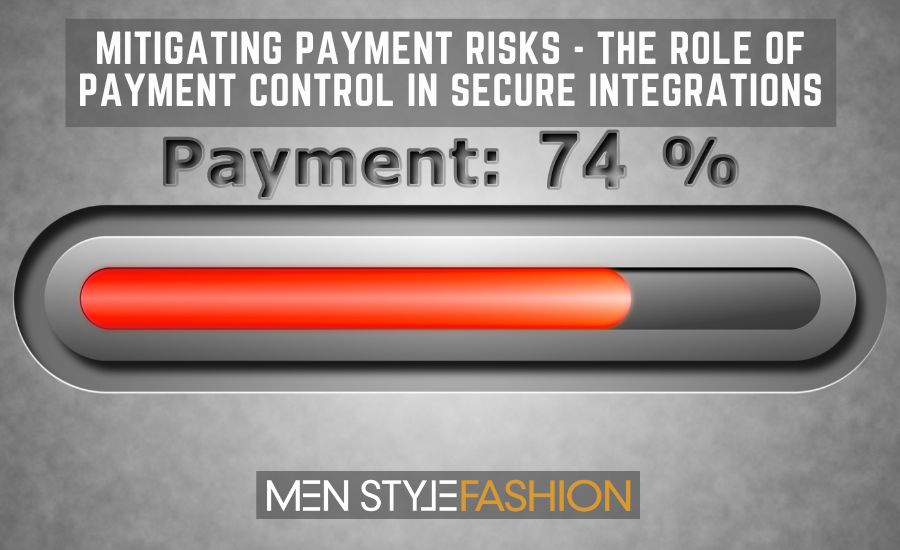8 of the best men’s shoes for summer from HEYDUDE
Jul 4, 2025Mitigating Payment Risks – The Role of Payment Control in Secure Integrations
- Aug 9, 2023
- 0 Comments
246

As businesses increasingly rely on digital transactions, ensuring secure payment integrations has become a top priority. The smooth and secure transfer of monies between parties is vital to any organisation’s success. In this article, we’ll look at how payment control can help you reduce payment risks, ensure secure integrations, and protect sensitive financial data.
The Role of Payment Control in Secure Integrations
In today’s interconnected world, payment systems are the backbone of any enterprise. They enable businesses to conduct transactions efficiently and cater to customers worldwide. Amidst the realm of digital transactions, there lies an inherent duality. On the one hand, the convenience and seamlessness of utilising electronic payments unveil a treasure trove of possibilities. However, concealed within this marvel lurk the vicious threats of fraud, breaches of confidential information, and unwarranted access to sensitive data.
For this reason, it falls upon organisations to weave a robust tapestry of payment management systems, artfully crafted to preserve the sanctity of their domain and safeguard the cherished interests of their valued customers. Only through such diligent measures can these perils be subdued, paving the path for secure and trustworthy transactions. Here are some of the most crucial roles of payment control in secure integration:
1. Ensuring Transaction Security
Integrated payment processors play a significant role in securing transactions. They employ various security measures like encryption, tokenization, and two-factor authentication to protect sensitive data from being compromised during payment. Businesses can instil trust among customers and stakeholders by partnering with reputable payment processors.
2. Fraud Detection and Prevention
One of the primary concerns for businesses is fraudulent activities that lead to financial losses. Payment control solutions utilise advanced fraud detection algorithms and machine learning to identify suspicious transactions in real-time. These systems can accurately detect and prevent fraudulent activities by analysing patterns and historical data, ensuring a safe payment environment.
3. Compliance with Industry Standards
Payment control solutions help businesses adhere to industry regulations and compliance standards. The Payment Card Industry Data Security Standard (PCI DSS) is crucial for companies that handle cardholder data. Payment control ensures that all transactions meet PCI DSS requirements, avoiding potential penalties and reputational damage.
4. Reducing Chargebacks
Chargebacks can be a significant business headache, leading to revenue loss and increased operational costs. Payment control mechanisms help minimise chargebacks by validating transactions and ensuring that customers are legitimate before processing payments. This verification process reduces the likelihood of disputed charges and related financial losses.
5. Enhancing Customer Trust
The assurance of secure payment interfaces is vital to both enterprises and the sustenance of customer faithfulness. A profound sense of trust is instilled when patrons are assured that their payment details are protected and sheltered. Consequently, this engenders a propitious environment wherein customers are more inclined to engage in repeated transactions and eagerly advocate for the business, amplifying its renown and influence. Payment control solutions build a strong foundation of trust between companies and their clientele.
How to Integrate Payment Processor?
Integrated payment processors are at the forefront of secure payment integrations. These processors seamlessly integrate with existing systems, providing a unified platform for businesses to manage their payments. The advantages of integrated payment processors include:
1. Streamlined Payment Management
Integrated payment processors centralise payment data, making it easier for businesses to manage transactions and track revenue streams. This centralised approach improves efficiency, reduces errors, and simplifies financial reporting.
2. Expanded Payment Options
Customers embrace flexible payment alternatives. Integrated payment processors accept credit cards, debit cards, digital wallets, and even cryptocurrencies. Businesses can cater to a broader customer base by accommodating diverse payment preferences.
3. Real-time Reporting and Analytics
Integrated payment processors offer real-time reporting and analytics, allowing organisations to obtain vital insights into their financial performance. These insights enable businesses to make data-driven decisions that improve revenue streams and consumer experiences.
Conclusion
In conclusion, mitigating payment risks is paramount for businesses in the digital age. Embracing payment control solutions and integrated payment processors is a necessity and a strategic move to secure financial transactions and protect customer data. By investing in robust payment control mechanisms, businesses can foster trust, prevent fraud, and ensure seamless and secure payment integrations.
Publisher: Source link







